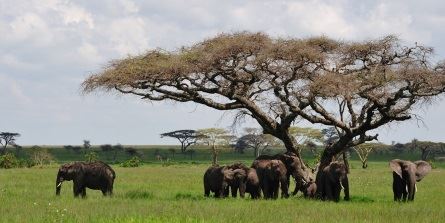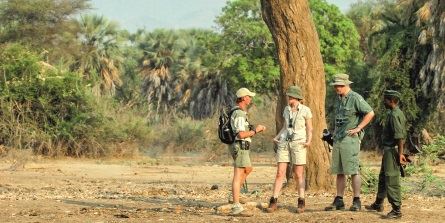A number of key factors can influence the success of your client’s safari experience. Taryn Nightingale reports.
There are three key features that determine the success of a traveller’s safari experience. Establishing what matters to your client will make or break their safari trip, industry experts say.
“Choosing the right location for the safari is critical,” says Onne Vegter, CEO of Wild Wings Safaris. Some safari destinations are great for a first-time safari whereas others are better suited to a return visit, or people with a particular interest.
“In some parts of greater Kruger, the game viewing is better and more consistent than in other areas. The far north of Kruger, for example, is not ideal for a first safari, where travellers are expecting to see more game, but it is great for a birding safari,” he says. The same can be said for some parts of the Okavango, where travellers might not see much wildlife and are only able to do water-based activities.
Other considerations regarding location include terrain. Vegter says although Mana Pools is a beautiful national park, it does not have any giraffes because the animals cannot move along the steep escarpment. For this reason, Mana Pools might not be a good choice for the first time safari-goer. “For many people on their very first safari, a giraffe is on their must-see list.”
The more authentic the safari, the more likely it will be enjoyed. “True wilderness as opposed to the managed ‘park’ is what makes an ideal location,” says Henk Graaff, MD of SW Africa Destination Management, adding that usually the more remote the location is, the better.
Travellers want an experience that is genuinely African, agrees Rodney Gerhardt, GM of Mpongo Private Game Reserve, adding that location plays a big role in creating that authenticity.
Some smaller reserves are a bit artificial and need to be micro-managed due to their small size, says Vegter. “In some cases, the lions might be confined to their own separate camp like a glorified zoo, and you might regularly encounter the boundary fence line during game drives.” A wrong choice of location can lead to disappointment, he says, so travel agents need to ensure they contact the tour operator or ground-handler to find out where the reserve is situated.
Timing is everything

Seasonality makes a big difference to the type of game viewing available and also presents agents with opportunities to save their clients money. “Choose the season wisely,” says Vegter. “Each season has its advantages but it is a well-known fact that the dry season usually offers better game viewing than the wet season.”
“Autumn and winter are normally the safari high season,” says Debby Oscroft, Marketing at Sunway Safaris. “Game viewing is far easier as animals cannot stay hidden in the bush when they need to find water.” Plant growth has slowed and because the grass is thinner, the bush is more open, improving visibility.
In summer (November to March), when rain can be expected, the vegetation is lush, restricting game viewing. There is also less need for game to travel out in the open in search of watering holes. Oscroft says most lodges have reduced rates during the rainy season which agents should enquire about.
On the other hand, it is during summer that baby animals abound, many plants are in bloom and there are more insects, says Vegter.
Travel agents must investigate which season would best suit the clients’ needs, comments Edwin Swan, Sales and Marketing Manager of Dream Hotels and Resorts. A client who wants to take photographs of wildlife wouldn’t necessarily enjoy a summer season safari where dense foliage limits game viewing. He says the seasons also influence how comfortable people are on safari.
Travel agents must remember that during summer hot and humid weather can be expected, whereas morning game drives can be bitterly cold in winter, says Vegter.
How good is your guide?

A great guide plays an important role in a successful safari experience. “Travellers will spend most of their time with the guide on safari and, at the end, the quality of the guide can determine the traveller’s enjoyment of the safari,” says Craig van Rooyen, Director of Tour d’Afrique.
“A great safari guide understands what makes a safari special and will make every game drive an amazing experience, regardless of what sightings you might have. He doesn't race from one Big Five sighting to the next, missing many of the smaller and equally interesting creatures. A great guide knows what to say and when, and also when to keep quiet,” says Vegter.
However, knowing whether your game ranger is a good guide or not is difficult to know in advance. Vegter advises travel agents to read online reviews or engage the services of an experienced tour operator or senior agent who can give advice based on personal experience.






















